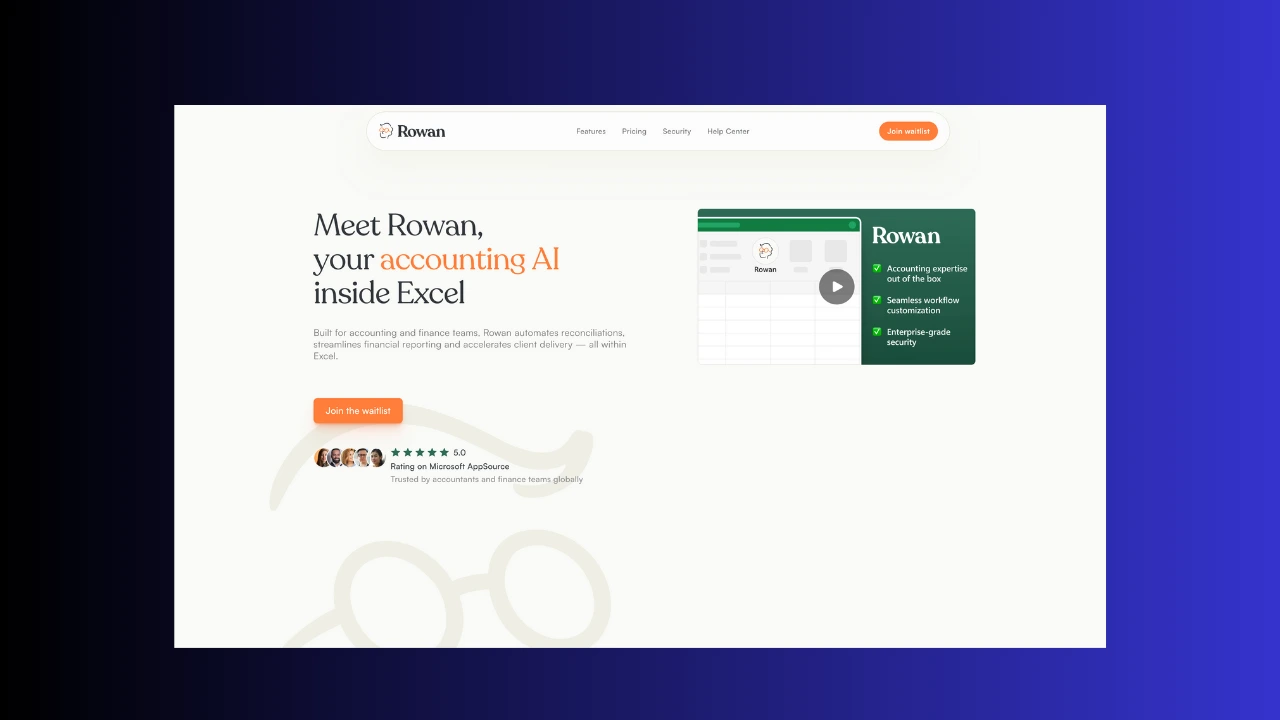The world of ecommerce is changing fast. This is thanks to new tech and how people shop. Artificial intelligence (AI) solutions are leading this change for online stores.
Using top artificial intelligence solutions, online shops can make shopping better for customers. They can also work more smoothly and sell more. AI helps with things like personalized product recommendations and improved customer service through chatbots and smart data.
As ecommerce grows, using the right AI tools can help businesses stand out. They can stay ahead of their rivals.
Key Takeaways
- AI solutions can enhance customer experience in ecommerce.
- Personalized recommendations drive sales and customer engagement.
- AI-powered chatbots improve customer service and support.
- Predictive analytics help online retailers make data-driven decisions.
- AI technologies streamline ecommerce operations, improving efficiency.
The Transformative Power of AI in Modern Ecommerce
The world of ecommerce is changing fast, thanks to Artificial Intelligence (AI). More than 50% of ecommerce businesses are now using AI. They see its value in better customer experiences, smoother operations, and higher sales.
AI is changing online shopping in many ways. It helps with personalized product suggestions and better customer service. AI-driven personalized recommendations can raise conversion rates by 15-20%. This makes them a key tool for online stores.
How AI Technology is Revolutionizing Online Retail
AI is making online shopping better by giving businesses tools for personalized customer experiences. AI looks at customer data to guess what they might buy. It then suggests products that fit their needs, making shopping more enjoyable.
Why Ecommerce Businesses Need AI to Stay Competitive
In today’s competitive ecommerce world, AI is a must-have. AI can cut client acquisition costs by up to 50%. This makes AI a smart investment for businesses wanting to grow their profits.
| Benefits of AI in Ecommerce | Impact on Business |
|---|---|
| Personalized Recommendations | 15-20% increase in conversion rates |
| Efficient Customer Service | Improved customer satisfaction |
| Marketing Automation | Up to 50% reduction in client acquisition costs |
By using AI, ecommerce businesses can keep up and even lead the way. As ecommerce keeps changing, AI’s role will grow. It’s key for businesses to invest in leading ai tools for e-commerce platforms.
Best AI Tools for Ecommerce: Selection Criteria
Ecommerce businesses face a sea of AI tools. It’s key to know what makes an AI tool valuable for your needs. The right tool can boost customer experience, streamline operations, and increase sales.
What Makes an AI Solution Valuable for Online Retailers
An AI solution is valuable if it fits well with your current systems. It should grow with your business and offer customization. Experts say, “AI tools that are flexible and adaptable are more likely to provide a strong return on investment for ecommerce businesses.” The key is to identify tools that can seamlessly integrate into your current infrastructure.
“The future of ecommerce is deeply intertwined with AI technology. Businesses that embrace AI will have a competitive edge in the market.”
How to Evaluate AI Tools for Your Specific Ecommerce Needs
To pick the right AI tools, consider these points:
- Check if the tool works well with your current ecommerce platform.
- See if the AI tool can grow with your business.
- Look at how much customization the tool offers to fit your needs.
- Find out if the tool gives you useful insights and improves customer experience.
By looking at these factors, ecommerce businesses can find AI tools that meet their needs now and help them grow in the future.
AI-Powered Customer Service and Chatbot Solutions
Ecommerce businesses are now using AI chatbots to improve customer service and cut down on support work. These tools change how digital stores talk to customers, giving fast and personal help any time.
1. Zendesk AI
Zendesk AI is a top-notch customer service tool that uses AI for excellent support. It has advanced features to make customer service better for online stores.
Key Features
- AI-powered ticket routing: Sends customer questions to the right support agents.
- Intelligent chatbots: Talk to customers, answering common questions right away.
- Sentiment analysis: Checks customer feedback to find ways to get better.
Implementation Benefits
Using Zendesk AI brings many benefits, like:
- Reduced response times: Customers get help quickly.
- Increased customer satisfaction: Offers personalized and quick service.
- Improved agent productivity: Automates simple tasks.
Pricing Structure
Zendesk AI has a flexible pricing plan for different business needs. The cost changes based on the number of agents and features needed.
2. Intercom
Intercom is a leading AI customer service tool for online stores. It has strong features for better customer interaction.
Key Features
- Personalized messaging: Sends messages based on customer actions.
- AI-driven chatbots: Offers 24/7 support, answering questions fast.
- Customer segmentation: Helps sort customers by their actions.
Implementation Benefits
Using Intercom can lead to:
- Enhanced customer engagement: Offers personalized talks.
- Increased sales: Targets customers with the right offers.
- Improved customer retention: Provides quick and effective help.
Pricing Structure
Intercom’s pricing changes based on customers and features needed, making it scalable for growing businesses.
3. Ada
Ada is an AI customer service platform for online stores. It uses advanced AI to automate support, making it great for better customer service.
Key Features
- AI-driven support automation: Automates simple customer support tasks.
- Conversational AI: Has natural-sounding talks with customers.
- Integration capabilities: Works well with existing online platforms.
Implementation Benefits
Ada brings benefits like:
- Reduced support costs: Automates simple questions.
- Enhanced customer experience: Offers quick and personal help.
- Increased efficiency: Makes customer service smoother.
Pricing Structure
Ada’s pricing is based on the business’s needs, with costs changing based on the scale and features needed.
AI Tools for Personalized Product Recommendations
In the competitive world of ecommerce, personalized product recommendations are key. AI tools make this possible, helping online retailers offer tailored suggestions. This boosts the shopping experience and drives sales. We’ll look at three top AI tools: Nosto, Dynamic Yield, and Klevu.
Nosto
Nosto is a powerful AI tool for ecommerce businesses. It helps deliver personalized product recommendations to customers.
Key Features
- Personalized Product Recommendations: Nosto uses AI to analyze customer behavior and suggest products.
- Real-time Data Analysis: It analyzes customer data in real-time, keeping recommendations current.
- Multi-Channel Personalization: Nosto personalizes across email, web, and mobile.
Implementation Benefits
Using Nosto can significantly boost conversion rates and average order values. It enhances customer satisfaction and loyalty by suggesting relevant products.
Pricing Structure
Nosto’s pricing depends on the business size and personalization needs. For more details, contact Nosto directly.
Dynamic Yield
Dynamic Yield is a leading AI tool for personalized product recommendations. It offers features to improve the customer experience.
Key Features
- Advanced Personalization: Dynamic Yield uses machine learning for personalized product suggestions.
- Omnichannel Experience: It ensures a seamless experience across all touchpoints.
- Real-time Optimization: Dynamic Yield optimizes recommendations based on customer behavior.
Implementation Benefits
Dynamic Yield can improve customer engagement and conversion rates. Its advanced personalization builds stronger customer relationships.
Pricing Structure
Dynamic Yield’s pricing varies by implementation scope and business size. Contact Dynamic Yield for a customized quote.
Klevu
Klevu is an AI-powered search and personalization tool. It helps ecommerce businesses offer relevant product recommendations.
Key Features
- AI-Driven Search: Klevu’s search is powered by AI, ensuring relevant results.
- Personalized Recommendations: It suggests products based on customer behavior and preferences.
- Merchandising Control: Klevu lets businesses control site merchandising, aligning with goals.
Implementation Benefits
Klevu’s implementation can enhance customer satisfaction and increase sales. It improves the shopping experience by suggesting relevant products.
Pricing Structure
Klevu’s pricing is customized for each ecommerce business. Contact Klevu for accurate pricing information.
| AI Tool | Key Features | Implementation Benefits |
|---|---|---|
| Nosto | Personalized recommendations, real-time data analysis, multi-channel personalization | Increased conversion rates, average order values, customer satisfaction |
| Dynamic Yield | Advanced personalization, omnichannel experience, real-time optimization | Improved customer engagement, conversion rates, customer relationships |
| Klevu | AI-driven search, personalized recommendations, merchandising control | Enhanced customer satisfaction, increased sales, improved shopping experience |

AI-Driven Marketing Automation for Ecommerce
AI-driven marketing automation is changing the game for ecommerce businesses. It automates tasks, personalizes customer interactions, and optimizes marketing campaigns. This tech is making marketing more efficient and effective for companies.
AI marketing tools are key for ecommerce businesses to stay ahead. Klaviyo and Optimizely are two top tools in this field.
7. Klaviyo
Klaviyo is a top marketing automation platform for ecommerce. It uses AI to create personalized marketing campaigns.
Key Features
- Advanced segmentation capabilities
- AI-driven predictive analytics
- Personalized email marketing automation
- Integration with popular ecommerce platforms
Implementation Benefits
Klaviyo boosts ecommerce marketing efforts. Its AI insights help businesses understand customer behavior. This leads to targeted campaigns that boost sales.
Pricing Structure
Klaviyo’s pricing is based on contacts in your database. This model helps businesses grow their marketing without unexpected costs.
“Klaviyo has been a game-changer for our ecommerce marketing strategy, enabling us to personalize our campaigns at scale.”
— Ecommerce Business Owner
8. Optimizely
Optimizely is a leading AI marketing tool for ecommerce. It offers features to improve customer engagement and conversion rates.
Key Features
- A/B testing and experimentation
- AI-driven personalization
- Advanced analytics and reporting
- Integration with various marketing channels
Implementation Benefits
Optimizely’s AI insights help businesses make data-driven decisions. It optimizes marketing campaigns for better results. The platform’s personalization delivers tailored customer experiences.
Pricing Structure
Optimizely’s pricing depends on business needs, like users and features required.
In conclusion, AI marketing tools like Klaviyo and Optimizely are transforming ecommerce. They help businesses streamline marketing, personalize customer interactions, and improve campaign performance.
Visual Search and Image Recognition AI Solutions
Top-rated AI tools for online stores now include visual search and image recognition solutions. This marks a new era in ecommerce innovation. These technologies let customers search for products using images. This makes shopping better and helps find products easier.
9. Syte
Syte is a leading visual search and image recognition AI solution. It helps ecommerce businesses offer a more intuitive and engaging shopping experience. By letting customers search using images, Syte boosts conversion rates and customer satisfaction.
Key Features
- Advanced image recognition technology
- Personalized product recommendations based on visual searches
- Seamless integration with existing ecommerce platforms
Implementation Benefits
Using Syte brings many benefits. It increases customer engagement and improves sales. It allows businesses to cater to more customers, making shopping more inclusive.
Pricing Structure
Syte’s pricing is based on each ecommerce business’s needs. Costs vary by transaction volume and customization level. For detailed pricing, contact Syte directly.
10. Vue.ai
Vue.ai is another key player in visual search and image recognition AI. It offers ecommerce businesses a powerful tool to improve product discovery. Vue.ai’s technology provides a more personalized shopping experience, boosting loyalty and retention.
Key Features
- AI-driven visual merchandising
- Advanced product categorization and tagging
- Personalized recommendations based on visual search queries
Implementation Benefits
Using Vue.ai can greatly improve customer satisfaction and sales performance. It makes presenting products more engaging and accessible, improving the shopping experience.
Pricing Structure
Vue.ai’s pricing suits businesses of all sizes. Costs depend on implementation scope and required features. Interested businesses should contact Vue.ai for a customized quote.
As ecommerce evolves, visual search and image recognition AI solutions like Syte and Vue.ai will become more common. By using these technologies, online retailers can stay competitive and offer a more engaging shopping experience.
“The future of ecommerce lies in the ability to provide a seamless and intuitive shopping experience. Visual search and image recognition AI are key to achieving this goal.”
— Ecommerce Expert
Implementation Strategies for AI Tools in Ecommerce
To get the most out of AI in ecommerce, businesses need good plans. They must integrate and monitor AI tools well. This ensures they work as expected.
Integration Best Practices for Maximum ROI
Integrating AI tools right is key. Businesses should:
- Check their current tech setup to find where AI can fit in.
- Pick AI tools that work with their systems.
- Make a detailed plan, including when and what to do.
By doing these things, ecommerce sites can get the most from AI. They’ll also work better overall.
Common Implementation Challenges and Solutions
AI tools in ecommerce can be tough to set up. Some big problems are:
- Data Quality Issues: Bad data hurts AI tools. Fix this by cleaning and checking data well.
- Integration Complexity: Mixing AI with old systems is hard. Get help from experts.
Timeline Expectations for AI Tool Deployment
How long it takes to set up AI tools varies. It depends on how complex the project is. Here’s what to expect:
- Simple Integrations: 2-4 weeks
- Complex Integrations: 3-6 months or more
Knowing these timelines helps businesses plan better. They can reach their AI goals faster.
Measuring Success: KPIs for AI-Enhanced Ecommerce
Measuring AI’s success in ecommerce means looking at specific metrics closely. It’s key to pick the right KPIs to see how well AI tools work. This helps businesses know if their AI strategies are paying off.
Essential Metrics to Track After Implementation
After adding AI tools, ecommerce sites should watch conversion rates, average order value (AOV), and customer satisfaction scores. These numbers show how AI affects sales, customer happiness, and business growth.
For example, AI product suggestions can boost conversion rates and AOV. Keeping an eye on these metrics helps businesses see if their AI investments are worth it. It guides them to make smart choices to improve their strategies.

Case Studies: Real-World Success Stories
Many ecommerce sites have improved a lot with AI. A top online store used AI chatbots to better serve customers, seeing a 30% jump in customer satisfaction. Another site used AI for personalized product suggestions, seeing a 25% sales increase.
These stories show AI’s power to change ecommerce. By looking at these examples, businesses can learn how to use AI well and measure its success.
Future-Proofing Your AI Ecommerce Strategy
To keep their AI strategy ahead, businesses should always learn and adapt. This means updating AI models with new data, checking out new AI tech, and keeping up with trends.
By thinking ahead, ecommerce sites can stay on top in a fast-changing world. This approach helps them grab new chances and stay strong in the market.
Conclusion
The world of ecommerce is changing fast. Businesses that use ai software for e-commerce businesses are set to lead. They can improve customer experience and boost sales with top artificial intelligence solutions for online retailers.
Many AI tools help with different parts of ecommerce. They support customer service, offer personalized product suggestions, and help with marketing and visual search. Using these tools can help businesses stay ahead and meet their goals.
Choosing the right AI tools and using them well is key. This way, businesses can offer a better online shopping experience. It makes shopping more personal, efficient, and engaging. This leads to happier customers and more sales.
FAQ
What are the best AI tools for ecommerce?
Top AI tools for ecommerce include Zendesk AI, Intercom, and Ada. Nosto and Dynamic Yield are also great for product suggestions. Klevu and Klaviyo help with marketing. Optimizely, Syte, and Vue.ai offer solutions for visual search and more.
How can AI improve customer experience in ecommerce?
AI makes shopping better by suggesting products just for you. It also helps with customer service through chatbots. Plus, it makes finding products easy with visual search.
What are the benefits of using AI-powered customer service chatbots?
Chatbots answer questions fast, making customers happy. They work all day, so humans can focus on tough issues. This makes service better and more efficient.
How do I choose the right AI tool for my ecommerce business?
Pick the right AI tool by thinking about what you need. Look at the tool’s features, cost, and how well it fits with your site. Make sure it works well with your current setup.
What is the role of AI in ecommerce marketing automation?
AI helps with marketing by making campaigns personal. It also boosts email marketing and customer groups. This leads to more sales and growth.
How can visual search and image recognition AI solutions benefit my ecommerce business?
Visual search helps customers find products easily. It makes shopping better and boosts sales. It’s great for product discovery and customer experience.
What are the key metrics to track when measuring the success of AI-enhanced ecommerce?
Watch conversion rates, customer happiness, and average order value. Also, track return on investment (ROI). Look at specific AI tool metrics like chatbot success or personalized recommendation clicks.
How can I ensure successful deployment of AI tools in my ecommerce business?
For a smooth AI tool rollout, set clear goals and choose the right tool. Train your team well. This ensures a good fit and success.
What are some common challenges associated with implementing AI tools in ecommerce?
Issues include bad data, tricky integration, and keeping tools updated. There’s also the risk of AI bias. These can slow down or fail your AI efforts.
How can I future-proof my AI ecommerce strategy?
Keep up with AI tech trends. Always check how your AI tools are doing. Be ready to change your strategy as things evolve.






Wow! Thank you! I continually wanted to write on my website something like that. Can I take a portion of your post to my site?
I am so happy to read this. This is the type of manual that needs to be given and not the random misinformation that’s at the other blogs. Appreciate your sharing this greatest doc.
Wow, fantastic blog format! How lengthy have you ever been running a blog for? you made blogging glance easy. The overall look of your web site is wonderful, as smartly as the content material!
I would like to voice my passion for your generosity giving support to men and women who actually need assistance with in this concept. Your very own dedication to getting the solution up and down ended up being surprisingly productive and has really allowed professionals like me to get to their dreams. Your new insightful useful information entails so much a person like me and somewhat more to my office colleagues. With thanks; from each one of us.